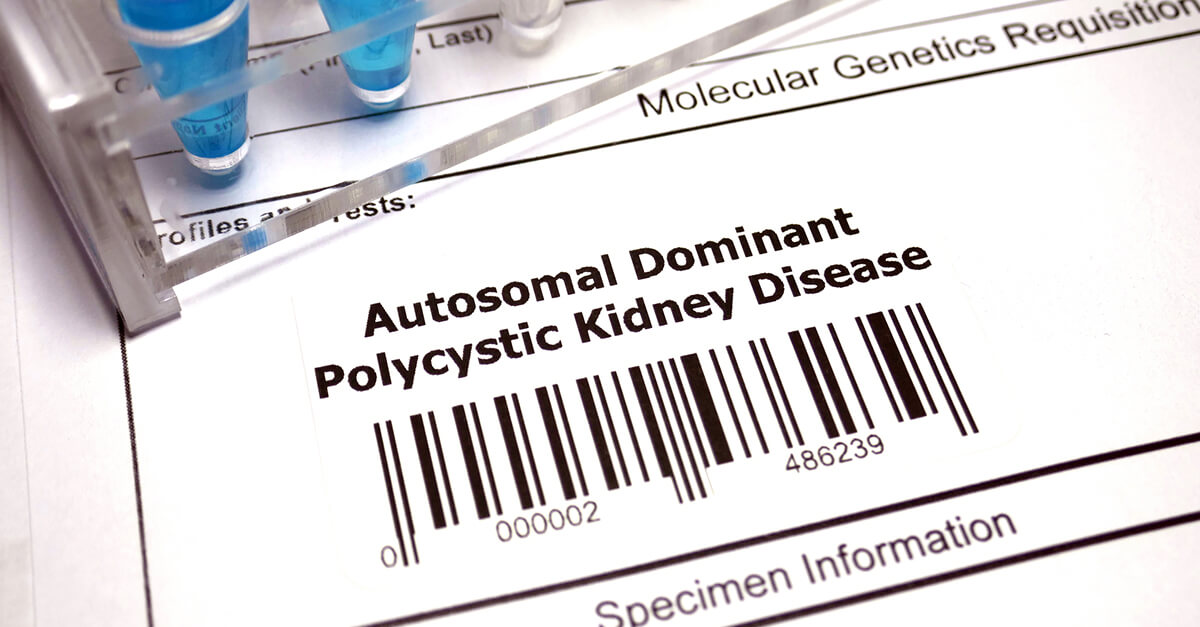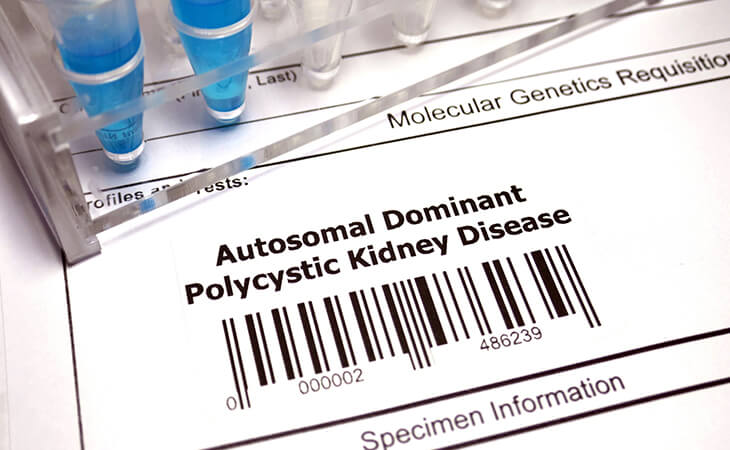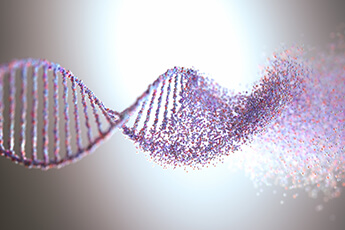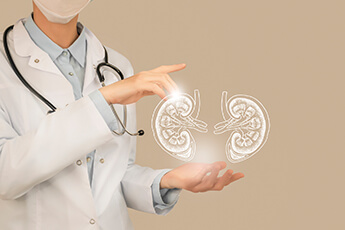What is autosomal dominant polycystic kidney disease (ADPKD)?


It’s estimated that 1 in 7 Americans has some type of kidney disease. Kidney disease damages your kidneys, the organs that play critical roles in your body’s urinary system.
What do your kidneys do?
Most people are born with two bean-shaped organs called kidneys. (About 1 in 1,000 newborns have just one functioning kidney.) These organs help filter impurities from your blood, which leave your body as urine.
Your kidneys also make hormones that help your body:
control blood pressure
increase blood sugar (glucose)
produce red blood cells
reduce inflammation
regulate metabolism
strengthen bones
From the community: “Polycystic Kidney Disease is a genetic disorder, if you have the familial PKD history, you will have a greater chance to get it. If not, it may be simple renal cysts or multiple kidney cysts. both of them is easier to handle than PKD. do you get your medical report now? if you are diagnosed with PKD, it is necessary for your children to make an untrasound tests. Hope everything is fine.” – Inspire member
What is kidney disease?
Kidney disease refers to any condition that damages your kidneys. Chronic kidney disease (CKD) is the most common type. When you have kidney disease, your kidneys must work harder to filter waste from your blood.
People with high blood pressure and diabetes are most at risk for CKD. These are factors that you can control through dietary changes, lifestyle changes, and medications. But some people have a gene change, or mutation, that causes multiple cysts to form in their kidneys. This condition is polycystic kidney disease (PKD).
What are kidney cysts?
Kidney cysts are sacs of fluid that form inside your kidneys. These cysts are common, affecting up to half of people over 50. They may be as small as a pea or grow as big as a baseball. Most people have just a few cysts in one kidney. These cysts are benign, which means they aren’t likely to cause kidney cancer or other problems. In fact, the majority of people with kidney cysts never know they have them.
But some people have a genetic condition that causes thousands of kidney cysts to form in both kidneys. This gene change (mutation) causes polycystic kidney disease (PKD).
From the community: “I joined Inspire originally… for support because my mom had advanced lung cancer. She lost her fight... Im back now because I was diagnose with Polycystic Kidney Disease (PKD). Im 29. I need all the information I can get. Is there a specific PKD group on here? The doctor told me my kidneys are working at 100% and blood pressure is normal. I have a umbillical hernia, also im almost 300lbs about 280 on a 5'5 frame. I so need to lose weight. Im so stressed and still depressed about moms death. If have any info or question leave a comment, send a message or add as friend. Will check this forum at least twice a week. Have a nice day everyone and keep living.” – Inspire member
What types of polycystic kidney disease (PKD) are there?
There are two types of polycystic kidney disease:
autosomal dominant polycystic kidney disease (ADPKD)
autosomal recessive polycystic kidney disease (ARPKD)
Autosomal dominant polycystic kidney disease (ADPKD)
ADPKD is the most common type of polycystic kidney disease. The disease often runs in families, affecting anywhere from 1 in 400 to 1 in 1,000 people. ADPKD symptoms typically appear in adults when they’re between 30 and 50 years old, which is why doctors often refer to it as adult PKD. (Although rare, some children have ADPKD.) Symptoms include back or side pain, blood in your urine, high blood pressure, and eventually, kidney failure.
The term “autosomal dominant” means that a child has a 50% chance of getting the disease-causing gene if one parent has it. With a dominant disease, a child who inherits the gene mutation is certain to develop the condition (although symptoms most likely won’t appear until adulthood). Less commonly, someone with no family history of ADPKD develops the disease through a spontaneous gene mutation.
The mutations that cause ADPKD can affect three different genes. There are different types of ADPKD. The gene change determines the disease type and severity.
Autosomal recessive polycystic kidney disease (ARPKD)
Approximately 1 in 20,000 children are born with ARPKD. Signs of ARPKD like enlarged kidneys are often evident on prenatal ultrasounds while a baby is still in the womb. Sometimes, symptoms develop in infancy. Doctors also use the term infantile PKD to refer to ARPKD.
The term “autosomal recessive” means that a child only develops the disease if they inherit an altered PKHD1 gene from both parents. If only one parent has the gene change, their child won’t get ARPKD. However, the child still has the mutated gene. As a carrier, they can pass the altered gene to their future children. A child whose parents both carry the gene change for ARPKD has a 25% chance of developing the kidney disorder.
Children with ARPKD have overly large kidneys that put pressure on their lungs. In the womb, a baby’s lungs might not develop properly. After childbirth, a baby may struggle to breathe. This rare kidney disease also causes liver cysts and scarring, as well as high blood pressure that can cause strokes. A child with ARPKD will have kidney failure (nonfunctioning kidneys) before they reach adulthood.
How common is ADPKD?
ADPKD is generally a rare disease. However, it is the most common inherited form of kidney disease. It may affect 1 in 500 to 1 in 2,500 people. Approximately 6,000 Americans receive an ADPKD diagnosis every year. But the number of people living with ADPKD is likely higher. Experts believe that one-quarter of the 12 million people worldwide who have ADPKD are asymptomatic (no symptoms). They’re unaware they have the disease.
What should you expect if you have ADPKD?
Doctors use imaging tests like ultrasounds, CT scans, and MRIs to detect kidney cysts and diagnose ADPKD. You may also get a blood test to check for a gene mutation.
If you have ADPKD, you’re at risk for chronic kidney disease (CKD) and eventual kidney failure. People with kidney failure need dialysis or a kidney transplant to stay alive. The prognosis for someone with ADPKD depends on many factors like the gene mutation and the severity of the disease progression. Some people have kidney failure in their 50s or earlier, while others may not have significant problems until their 70s or later.
Sources
Polycystic kidney disease (PKD) symptoms, treatments, and causes. American Kidney Fund.
Kidney cysts. Cleveland Clinic. January 2021.
Polycystic kidney disease. Cleveland Clinic. February 2021.
Autosomal dominant polycystic kidney disease. Genetic and Rare Diseases Information Center. February 2020.
Polycystic kidney disease. Mayo Clinic. October 2020.
Polycystic kidney disease. MedlinePlus. August 2020.
Autosomal dominant polycystic kidney disease National Institute of Diabetes and Digestive and Kidney Diseases. January 2017.
Autosomal recessive polycystic kidney disease National Institute of Diabetes and Digestive and Kidney Diseases. January 2017.
Kidney disease: The basics. National Kidney Foundation.
Autosomal dominant polycystic kidney disease. National Organization for Rare Disorders. 2015.
What causes ADPKD? PKD Foundation. June 2021.
What is ADPKD? PKD Foundation. June 2021.
Disclaimer
Member comments are lightly edited for length and to remove identifying information but are otherwise reproduced as they appear in the community as part of public posts.
This content is for general informational purposes only and does not necessarily reflect the views and opinions of any organization or individual. The content should not be used as a substitute for professional medical advice, diagnosis, or treatment. Please consult your healthcare provider about any questions you may have regarding a medical condition.




